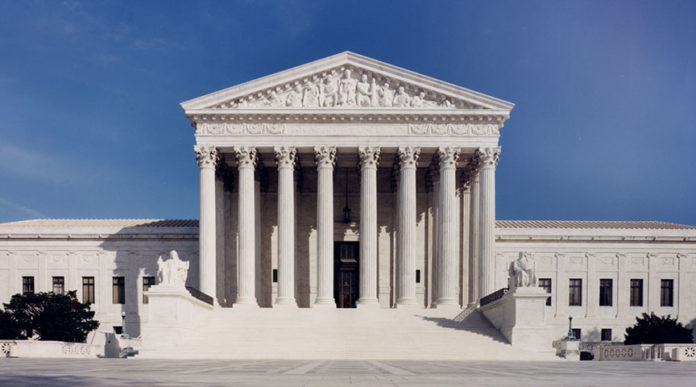California’s state-funded travel ban to Kansas and 11 other states because of laws it says are discriminatory has survived a constitutional challenge.
At the end of April, the U.S. Supreme Court denied Texas’ request to take the rare step of directly hearing a challenge to the California law.
The case is centered on a California law that bans taxpayer-funded travel to states with laws the California attorney general determines are discriminatory.
California bans state-funded travel to Kansas because it objects to a 2016 law that prevents public colleges and universities from denying funds or campus resources to religious groups that require members to adhere to the group’s religious beliefs.
Critics said the Kansas bill would allow discrimination based on race, sexual orientation and gender at public universities. Supporters said the bill protected religious freedom.
Texas challenged the constitutionality of the California law, saying its sanctions were “born of religious animus” and violated the constitution.
“California has targeted Texas and its residents because Texas protects the religious
freedom of faith-based child welfare providers within its borders,” the Texas attorney general argued in a brief challenging the law.
“California considers laws protecting religious freedom to be the ‘last gasp of a decrepit world view,'” the lawsuit stated.
Kansas Attorney General Derek Schmidt had urged the court to hear the case.
“The state of California has been boycotting travel to Kansas since Kamala Harris was California Attorney General because it disagrees with certain Kansas state laws,” Schmidt said in a statement.
“In our federal union, states boycotting each other over policy disagreements is unwise and of questionable legality, so it is disappointing the U.S. Supreme Court declined to hear and resolve the matter.”
Justice Samuel Alito authored a 10-page dissenting opinion joined by Justice Clarence Thomas.
Alito complained about the court’s general reluctance to hear cases on original jurisdiction in cases pitting states against each other.
He cited a history of cases where the court has refused to use original jurisdiction to get involved in state-versus-state disputes.
“The practice of refusing to permit the filing of a complaint in cases that fall within our original jurisdiction is questionable, and that is especially true when, as in this case, our
original jurisdictional is exclusive,” Alito wrote.
“As the history recounted above reveals, the Court adopted this practice without ever
providing a convincing justification,” he wrote.
“The principal reason provided — that entertaining all suits between two states
would crowd out consideration of more important matters on our appellate docket — rests on a dubious factual premise…”
Alito argued that the court was forcing California and Texas to give up the right to have their disputes with other states adjudicated by the nation’s highest court, something they acquired when they joined the union in the 1800s.
“This understanding of our exclusive original jurisdiction should be reexamined,” Alito wrote.
Alito said, at a minimum, the court should take briefs and hear arguments on the questions arising from the Texas challenge to the California law.
He wrote that Texas raised “novel constitutional claims” in arguing against California’s travel ban.
Schmidt had joined with 18 other attorneys general in a brief to the U.S. Supreme Court arguing that the state-funded travel ban was unconstitutional.
Schmidt signed onto the legal brief that urged the court to allow the Texas lawsuit to move forward.
“This case is critical to preserving the federalism principles on which our nation was built,” the attorneys general argued in their brief.
“Without a ruling from this court, California and other states will be emboldened to ramp up pressure on their fellow states’ internal affairs.
“Efforts like these are especially troubling where, as here, they involve economic sanctions akin to those used by warring nations.”












